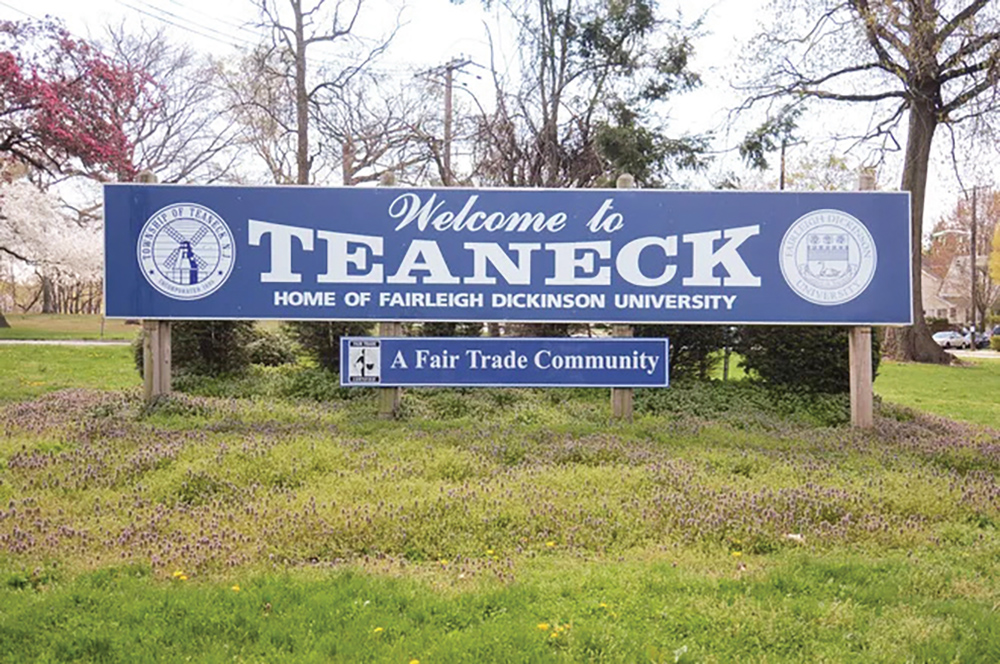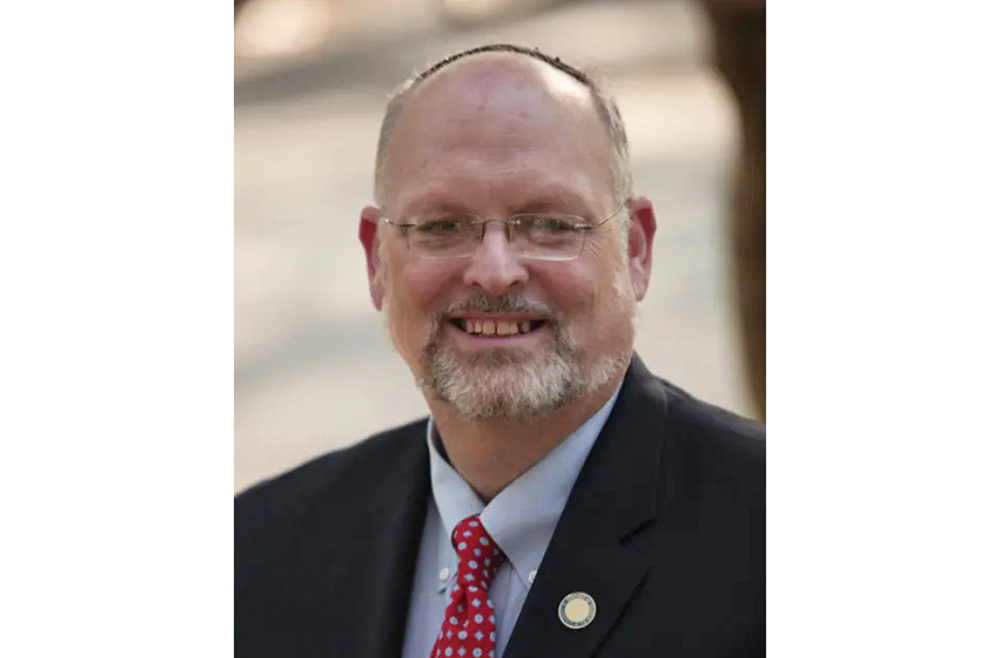Mayor Michael Pagan casts the deciding vote to replace his former mentor Joey Bodner on the planning board.

Political power plays and divisions are not limited to those streaming across national newswires; sometimes they develop much closer to home. It behooves us all to understand both nuanced and overt changes in local government, as they may have a more intense effect on residents’ lives than one might think.
To the scores of people who attend the Teaneck Town Council’s meetings, and particularly to those who regularly speak during the public comment period known as “good and welfare,” there was no doubt as to what the council had done on June 27 when it replaced every member of both land-use boards—the Zoning Board of Adjustment and the Planning Board—whose terms were expiring. It was time for Mayor Michael Pagan to clean house, as prompted by the Rise4Teaneck slate that elected him mayor.
Then, on July 13, Pagan took the opportunity—with the designated vote he promised he would later give to Council Member Mark “Mendy” Schwartz (co-publisher of The Jewish Link)—to attend the first Teaneck Planning Board meeting with the new majority and replace Joey Bodner as chair with Howard Thompson, who has previously served as the planning board’s secretary and has served on the board since January 2013. Bodner has not only served as board chair for the past 17 years, having served as a member of the board for 22 years; he also mentored Pagan in his first role in Teaneck government. Bodner said he had worked closely with Pagan when he joined the planning board in 2018, after Pagan lost elections for the town council in 2016 and 2018. Bodner has also worked with Thompson extensively.

Chris Brown, a new full member of the board, was elected vice chair, replacing Yitz Stern, who has served on the planning board in various roles since July 1998, and has been vice chair since 2018. Stern also served as a member of the town council from 1998 to 2006 and from 2010 to 2014, and also as a Zoning Board of Adjustment member from 1990 to 1998. Stern has been serving Teaneck continuously in various capacities for the past 33 years.

“I have served with both Joey and Yitz on the planning board; they have been incredibly generous with their knowledge and experience, and their leadership will be sorely missed,” said Council Member Karen Orgen. “As a township we owe them a great deal of thanks for the hours they have spent over a period of decades, as public citizens working only in the interest of community service.”
“To me, last week’s planning board reorganization was very surprising,” Stern told The Jewish Link. “After spending the past 25 years on the board—the past five as vice chair—I was very disappointed not to be given the opportunity to continue in its leadership.
“During Mr. Bodner’s longtime and outstanding tenure as chair, the board never acted as a political body and always dealt with matters in a fair and even-handed way. It seems that the new council majority would like to head in a different direction—by injecting politics into a body that should continue to focus on impartially serving the best interests of all Teaneck residents.”
Bodner, for his part, remains passionate about serving Teaneck and contributing to the planning board’s activities. “Even though I have been voted out as chairman, I still have two more years on the board and I still am committed to helping Teaneck grow forward,” he told The Jewish Link.
It is of communal concern that Bodner and Stern, both Orthodox Jews, were replaced on the same day. The three other members who did not have their terms renewed on the planning board were Schwartz and Mark Zomick (both Orthodox Jews) and Tony Parker. Parker is the widower of Lizette Parker, a Teaneck mayor and the first Black woman to serve as mayor in any municipality in Bergen County, who tragically died while in office in 2016; Tony Parker was aligned with the other longstanding planning board members. (On the other land-use board that is not the topic of this article—the Zoning Board of Adjustment—Jennifer Prince, Mark Mermelstein and Daniel Wetrin, also all members of Teaneck’s Orthodox Jewish Community, similarly did not have their terms renewed.)
“I am grateful to Mr. Bodner and Mr. Stern for their years of service as chair and vice chair,” Pagan told The Jewish Link. “I am happy they will continue to serve as members of the planning board because their years of knowledge and experience is [sic] an asset to the township when it comes to land use and positive, progressive development for our hometown. As I mentioned at the meeting, the council and I would like to provide them with certificates of appreciation for their years of service as chair and vice chair.
“The new chairman, Howard Thompson, has long served on the planning board in a leadership position and I feel that he will do a tremendous job leading the board. Vice Chairman Chris Brown has years of experience as a city planner [in Hoboken] and will also do a good job in helping lead the Planning Board.
“I nominated Lucria Ortiz [another new member of the board] to serve as the secretary of the board because she has a wealth of knowledge and experience both as an attorney and as the President/CEO of the YMCA of Yonkers. And it was important to me that a Latina serve in a leadership role on the planning board,” Pagan stated.
Rabbi Elliot Schrier of Congregation Bnai Yeshurun, Teaneck’s largest synagogue, echoed the views of many in the Jewish community when he stated concern in the June 27 meeting that the council replaced four Orthodox Jews from the land-use boards in one swoop, but made an equally intense plea for unity and for all residents to work together. “If we were dealing with community members of any other demographic group, not Orthodox Jews, but whether it be Hispanic board members, Black, gay, Asian, I do think this council would have exhibited greater wisdom and great sensitivity in approaching this issue,” he said. “I have no qualms with the qualifications of the people who were nominated, and I understand that there is a desire for change. But removing four at the same time speaks to some members of this community who have genuine apprehensions. People who have goodwill and are fair-minded are left with genuine concerns about this town council for the Orthodox Jews living here.”
For those who don’t regularly attend town meetings in person or online, an explanation may be helpful. Many in the larger Teaneck community were not aware that over the past several years a split developed between those who elected Council Members Elie Y. Katz, Schwartz and Orgen, and those who elected Council Members Denise Belcher, Danielle Gee and Hillary Goldberg. The previous Katz/Schwartz/Orgen majority-led council—known as the “Keep Moving Teaneck Forward Together” slate—favors commercial and residential development in an attempt to stabilize taxes and ensure a broader tax base. They have stated that by following this tactic, they have kept taxes stable with no increase for the last eight years. Pagan, who was elected in 2020, never voted out of step with Katz, Schwartz or Orgen until he was elected mayor by the Rise4Teaneck slate this past January.
“There are some people who object to development of any kind because they are afraid of change or other reasons. Some people are against any type of development and want the burden to remain with the current taxpayer. That is unfortunate,” said Stern.
“Budgets are becoming tighter and it’s important to nourish new sources of revenue. Every new development offers a rateable for the town that can lower the tax burden on current residents. Other than developing or redeveloping these properties, there really is no other way to increase revenue for a town. We can’t lower municipal salaries and we don’t want to increase taxes. Opponents to these projects warned we would not be able to fill these apartments, but there are waiting lists to get in,” Stern added.
What Does Rise4Teaneck Want?
Pagan was previously part of the Keep Moving Teaneck Forward majority, ran on the same ticket and was elected with the slate in 2020, after losing an election for council in 2016 and 2018 in which he was aligned with others. His appointment to the planning board in 2018 was as the mayoral designee of Mayor Mohammed Hameeduddin, who was also aligned with Keep Moving Teaneck Forward Together.
The new majority, under the slate Rise4Teaneck, appears to be systematically replacing every member of the land-use boards appointed by any previous majority. While many if not all projects were approved by the Teaneck Zoning Board of Adjustment of the Teaneck Planning Board unanimously, those supporting the Rise4Teaneck majority said at the June 27 meeting that they had long felt that their views were being ignored or set aside, or that too many projects were being approved too close together, either geographically or time-wise. The Rise4Teaneck slate appears concerned less with rising taxes and more with keeping neighborhoods residential.
So when the new Pagan-led council nominated all new board members for its land-use boards while not reappointing anyone whose terms were expiring, many people were shocked and dismayed. Procedural concerns regarding why none of the outgoing board members were interviewed and why people with no experience were being nominated as full members abounded. Many members of the Teaneck community who don’t regularly attend council meetings didn’t learn what had happened until almost two weeks later, when it was reported in The Jewish Link. The topic was covered subsequently in other newspapers.
Those who looked at the demographic makeup of the land-use board members who were dismissed or removed as chairs saw that seven of them were Jewish. But the only thing that Deputy Mayor Danielle Gee said publicly at the June 27 meeting was that the new appointments were based on the qualifications of the candidates, not on their previous experience serving on zoning or planning boards. Pagan repeatedly declined to respond to interview requests or to designate a council member to respond on his behalf following the June 27 meeting, but his full statement to The Jewish Link following the July 13 planning-board reorganization meeting appears above.
While there were whispers of bias, it appears that the only thing these land-use board members were guilty of was simply being appointed by a previous council, which had been pro-development; the new council, for the most part, appears to oppose the actions of the previous council.
According to those expressing public support for the council’s new nominations at the June 27 meeting, this was a long-awaited and long-planned move, and those who live near the various new developments going up around Teaneck—including the completed 1500 Teaneck Road, the stalled development at 100 State Street, the construction site near the southeast corner of State Street and Teaneck Road, the apartments at State Street and Queen Anne Road/1475 Palisade Avenue and the Holy Name expansion project—all objected to their approvals. In fact, in public discussions regarding apartment development plans for 1515 Teaneck Road (Block 5610, Lot 1, now occupied by the restaurant Elsa La Reina del Chicharron), several who were present remembered that “two-sink” kitchen floor plans were highlighted, noting that this would make the apartments welcoming to people who follow kosher laws, i.e., Jews. For some this was a feature; for others, as they say in tech, it was a “bug.” A leaflet for a community meeting in 2019 urging residents to object to the 100 State Street development warned residents of “gentrification, displacement, urbanization and marginalization,” and stated that the development of a 64-unit apartment building at the site was “outrageous.”
“When people were young marrieds or older adults seeking to downsize out of single-family homes, there were not enough apartments in Teaneck 15 years ago. All these new apartments were built on old, decrepit lots. I don’t know what the town would look like now if these development projects had not been approved,” said Orgen.
However, those who opposed the land-use board actions came together on June 27 to publicly state that their objections fell on deaf ears while the previous council continued to approve development projects unanimously, with the goal of keeping steady or lowering taxes for residents while increasing services and the town’s tax income from commercial projects or apartment complexes. Several supporters of Rise4Teaneck caught attention last year when they successfully drove away a proposal for Ohr Yisroel Yeshiva, a high school for boys, to relocate from Tenafly to a former church building at 61 Church Street in Northeast Teaneck. So far the “61 Church Street Legal Defense Fund” has publicly raised $16,900 through https://www.gofundme.com/f/oppose-new-development-in-our-quiet-neighborhood. Former Council Member Gervonn Romney Rice, who supported Rise4Teaneck, was a notable and early contributor to that fund.
A lawsuit regarding neighborhood noise and parking encroachment brought by residents from the Holy Name neighborhood was settled several weeks ago with virtually no changes to the original settlement offer. Interestingly, Bodner explained that he had been working on the Holy Name expansion project for much of the past two-and-a-half years and knew every detail; the new planning-board chair Thompson was the signatory on the plan this past week, essentially making no change to the proposal.
So those who ascribe motives other than a strong dislike of the previous council or board members in this debate probably don’t have any reason to assume such. It’s even possible that development will continue in a similar fashion, due to the demand for apartment options locally. However, a lot of bridges appear to have been burned in the past few years between these two factions of the Teaneck Town Council, creating a divide between those who feel they were being heard and those who feel they were not represented.
What the new council majority failed to do was explain their decisions to those who favor development or speak to The Jewish Link (which is co-published by Schwartz, a member of the council who is pro-development, who declined to comment for this article). This has led to negative talk and disappointment, particularly from the associates of land-use board members whose terms were not renewed, who felt their civic volunteer service was ended in an abrupt manner akin to political appointees. Schwartz himself, as well as Katz, has been targeted online in recent weeks. Their business holdings and private addresses, primarily outside of Teaneck, were shared on the Facebook page Blue Teaneck, in the interest of “transparency.”
At the same time, the public comment period at the June 27 meeting made it clear that many discussions about how to unseat the Keep Moving Teaneck Forward slate’s land-use board members had taken place behind closed doors in an exceedingly non-transparent manner, and that those who favored the new council were very happy with the results of their advocacy.
What is still unclear is how many people the new council is serving and how large or slim their majority actually is. What is clear is that the way the appointments were made and the way the planning board chair vote played out has led to a sense of intense concern within a small town, with many feeling that dedicated public servants like Bodner and Stern were disrespected. While the divide is understandable, at its core it simply is a very real and very concerning civics lesson about the fragile nature of government alliances, and how the choice of allegiances of one council member, Pagan, elicited a domino effect of changes in the community. It also shows clearly that seemingly small elections have consequences, and anyone who was surprised by the actions over the last weeks should pay careful attention to future town council election dates.
Bodner, for his part, remains confident that he will be able to work with the new members of the council. “It’s not about ego,” he said. “I am there for the team. In the big picture going forward, the people who are being put on these boards, these are good people. So assuming they see what’s happening on the boards, and [they notice] these insignificant political power plays and alliances, the probability is that we will be able to work with them and continue developing Teaneck responsibly going forward.”












